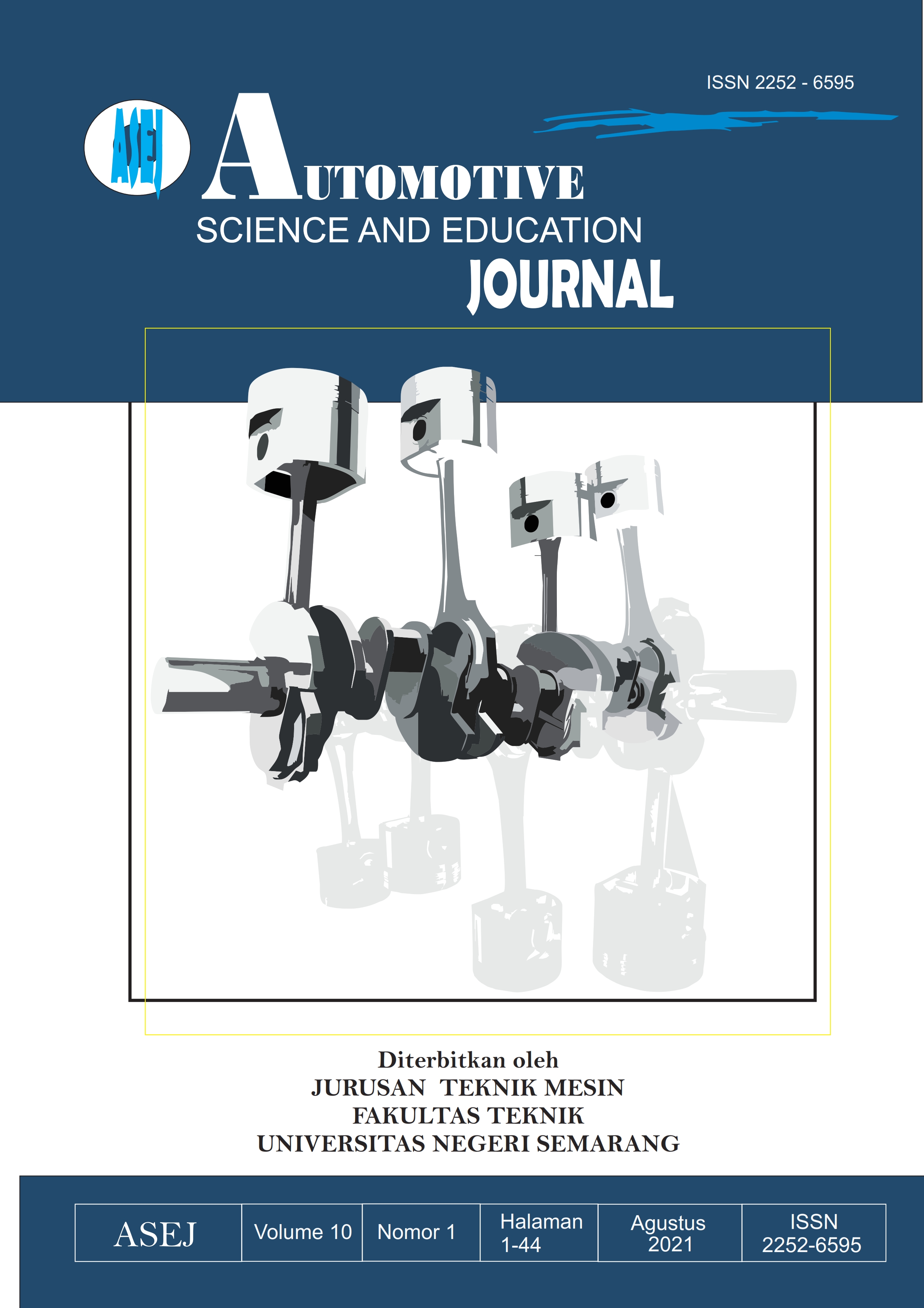PENGARUH VARIASI JENIS CAT PRIMER DAN TEMPERATUR TERHADAP LAJU KOROSI PADA PENGECATAN MENGGUNAKAN OVEN
Main Article Content
Abstract
Penelitian ini bertujuan untuk mengetahui nilai laju korosi pada specimen dan jenis cat primer yang paling efektif untuk mengendalikan laju korosi. dan mengetahui temperatur oven yang paling berpengaruh terhadap pengendalian laju korosi.
Desain penelitian yang digunakan yaitu eksperimen One Step Case Study karena dalam penelitian ditunjukan untuk mengetahui pengaruh variasi jenis cat primer dan temperatur terhadap laju korosi. Pada penelitian ini jenis cat primer yang akan diaplikasikan pada spesimen divariasikan temperatur pengeringan catnya menggunakan oven (spray booth) dengan variasi suhu 40℃ dan 60℃.
Hasil penelitian menunjukan bahwa cat primer jenis epoxy primer merupakan cat primer yang paling efektif dalam mengendalikan laju korosi dengan nilai laju korosi paling rendah di bandingkan dengan cat primer jenis lain yaitu sebesar 8,4 mpy untuk suhu oven 40℃ dan untuk suhu oven 60℃ dengan nilai laju korosi 7,8 mpy, sedangkan specimen yang mempunyai ketahanan terhadap karat paling buruk adalah specimen yang dilindungi oleh cat wash primer dengan nilai laju korosi 34,2 mpy untuk suhu oven 40℃ dan untuk suhu oven 60℃ dengan nilai laju korosi 26,8 mpy.
Kesimpulan dari penelitian ini adalah nilai laju korosi yang paling baik pada specimen yang dilindungi dengan cat primer yaitu jenis epoxy primer sebesar 7,8 mili per tahun dengan suhu oven 60℃. Nilai tersebut merupakan nilai laju korosi paling kecil dibanding dengan spesimen lain, yang artinya cat primer jenis epoxy primer dengan suhu oven 60℃ merupakan cat primer yang paling efektif untuk mengendalikan laju korosi
Kata Kunci : Korosi, Suhu,Cat primer,Spray Booth
Article Details
Proposed Creative Commons Copyright Notices
1. Proposed Policy for Journals That Offer Open Access
Authors who publish with this journal agree to the following terms:
- Authors retain copyright and grant the journal right of first publication with the work simultaneously licensed under a Creative Commons Attribution License that allows others to share the work with an acknowledgement of the work's authorship and initial publication in this journal.
- Authors are able to enter into separate, additional contractual arrangements for the non-exclusive distribution of the journal's published version of the work (e.g., post it to an institutional repository or publish it in a book), with an acknowledgement of its initial publication in this journal.
- Authors are permitted and encouraged to post their work online (e.g., in institutional repositories or on their website) prior to and during the submission process, as it can lead to productive exchanges, as well as earlier and greater citation of published work (See The Effect of Open Access).
Proposed Policy for Journals That Offer Delayed Open Access
Authors who publish with this journal agree to the following terms:
- Authors retain copyright and grant the journal right of first publication, with the work [SPECIFY PERIOD OF TIME] after publication simultaneously licensed under a Creative Commons Attribution License that allows others to share the work with an acknowledgement of the work's authorship and initial publication in this journal.
- Authors are able to enter into separate, additional contractual arrangements for the non-exclusive distribution of the journal's published version of the work (e.g., post it to an institutional repository or publish it in a book), with an acknowledgement of its initial publication in this journal.
- Authors are permitted and encouraged to post their work online (e.g., in institutional repositories or on their website) prior to and during the submission process, as it can lead to productive exchanges, as well as earlier and greater citation of published work (See The Effect of Open Access).
